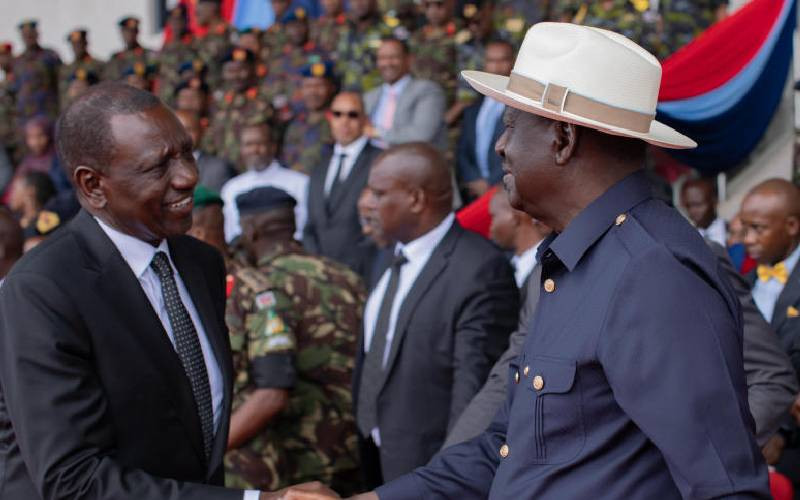
Demonstrations, fallouts, sackings and handshakes! Welcome to Kenya's new season of a thousand betrayals where the youth can no longer trust their parents, political godfathers have sold their proteges and understudies and the line separating political foes and allies is so blurred that it's impossible to tell who is who.
The ensuing confusion and chaos in political landscape is best exemplified by the disillusionment suffered by Gen Z, who had for months braved the elements, tear gas and bullets, both live and rubber, in the hope of liberating their motherland from a political system that has been consistently eating their future and hope rendering them jobless and poor.